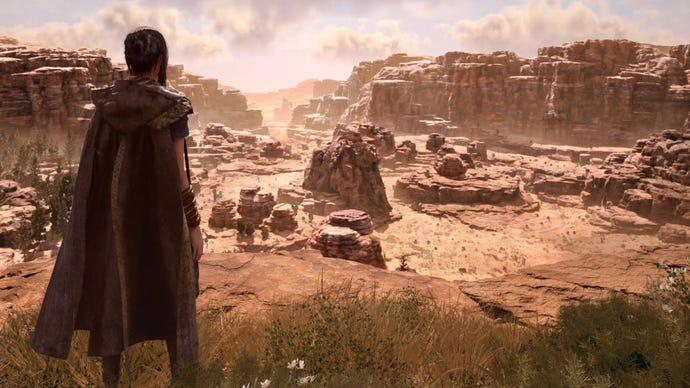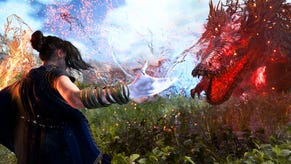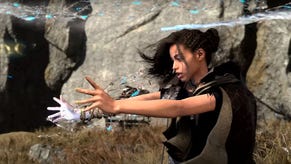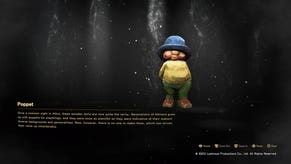Square Enix knows you’ve got ‘open world fatigue’, reckons Forspoken can be a tonic for your blues
We’ve all had a good laugh at Forspoken, but the game’s co-director Takefumi Terada wants you to know it’s more than a one-note viral joke.
Open world games are good and everything, but sometimes they’re just too much. Whether you’re 100 hours into Assassin’s Creed Valhalla and only about 30% through the game, or chasing around Far Cry 6 clearing all the icons off your map, there’s just something about open world games that’s getting tiresome these days. Maybe it’s the proliferation of them – open world games are pretty much the biggest genre out there, right now – or maybe it’s the dwindling nature of our collective attention span. Either way, we’re finding it harder and harder to care.
.jpeg?width=690&quality=70&format=jpg&auto=webp)
And Square Enix knows that. More specifically, Square Enix’s in-house development studio, Luminous Productions knows that. Coming off the back of Final Fantasy 15 (which, let’s face it, wasn’t really an open world game, now was it?), the studio has been keeping a close ear to the ground when it comes to player sentiment about open world games. And – though you may have only laughed at it because of a poorly-delivered trailer – Forspoken wants to do something a bit different with the open world genre to keep you more invested.
“Obviously, from our side, we're keeping an eye on what people are saying about open worlds and what the general feelings are in the industry right now,” says Forspoken co-director Takefumi Terada via Square Enix interpreter. “And so we are aware of the sentiment people feel towards [the genre].”
Terada goes on to note that Forspoken’s main selling point – the magically-enhanced parkour you’ll use to get around – has been intentionally wrangled to make the moment-to-moment play of the game feel better, and that the world has been crafted around your mobility. This makes the most languid part of lots of open world games (getting from A to B) slightly more active and exhilarating in this RPG experiment.
.jpeg?width=690&quality=70&format=jpg&auto=webp)
“Because this is a world that’s constructed around the idea of magic parkour, and being able to use it to its full capabilities, we do think that should go some way to help avoid this tired for fatigued sensation, for players,” Terada tells us. “And we hope that players will be able to overcome that [sense of open world fatigue] they’ve got, and really enjoy what Forspoken offers, because it’s something a little bit different.”
In playing the game, I can’t help but agree. Yes, there are plenty of markers on an open world map that’s otherwise quite barren (if not quite pretty, thanks to the infamously gorgeous-but-problematic Luminous Engine), but the tasks you must complete at each are simple – taking anywhere between 20 seconds and a few minutes to wrap up – and jetting from marker to marker with your magic does feel great. It’s not quite Tony Hawk’s via Hyperlight Drifter, but it’s not far off. And it’s probably for the best that it does feel good in your hands, because Luminous has invested a lot of time into making this killer feature work.
“I think that, really, the fundamental core point that we've got with Forspoken is this idea of the magically-enhanced parkour,” Terada explains. “The whole world, the open world and its map, was created on the basis of how it felt to play using the parkour with the sense of speed and the distance you can cover, quickly. And so, the whole of [in-game world] Athia was created on this foundation – using that sense of speed and distance that you get through the parkour to sort-of determine when to put the different contents, the different points of interest, and all those sorts of things.”
.jpeg?width=690&quality=70&format=jpg&auto=webp)
So whilst this is an open-world RPG that you’ll probably not stop yourself from comparing to Final Fantasy 15, the design of the whole thing has been scaled to you and your character and the movement you’ll have. In the hands-on I got with the game, there was no fancy ‘let’s speed you up’ movement – no grinding, or blink teleportation, or anything like that – but there was a lot of dashing, sliding, and quick-ascent grappling to overcome huge cliffs and towers. I’m told, in the final game, there will be yet more ways to move around.
”I think that being able to have this experience – of the motion and the movement with parkour – is perhaps the biggest difference for us [from Final Fantasy 15]. For me personally, that’s the biggest difference between the two games.”
.jpeg?width=690&quality=70&format=jpg&auto=webp)
And if even the promise of being able to scoot between objectives like a greased-up warlock with a deadline makes you roll your eyes, don’t worry: there’s also Story Mode. As you’d expect, Story Mode flattens the difficulty and allows you to simply enjoy the narrative of the game without having to worry about the difficulty curves or bottlenecks that could otherwise ruin your experience.
“Just to piggyback on what Terada is saying, we do have a really strong narrative in the game that plays as important a part as the open world aspect does, too,” says Roosa Jokiaho, cinematic artist on Forspoken. “If you want, you can focus solely on the story and go through that [without side-tracking too much].”
So yes, Forspoken is another open world game. And yes, it probably is going to require you to travel back and forth around the world, completing missions and fulfilling fetch quests. But at least you’ll have fun doing it.
Forspoken launches for PC and PS4 on January 24, 2023.








